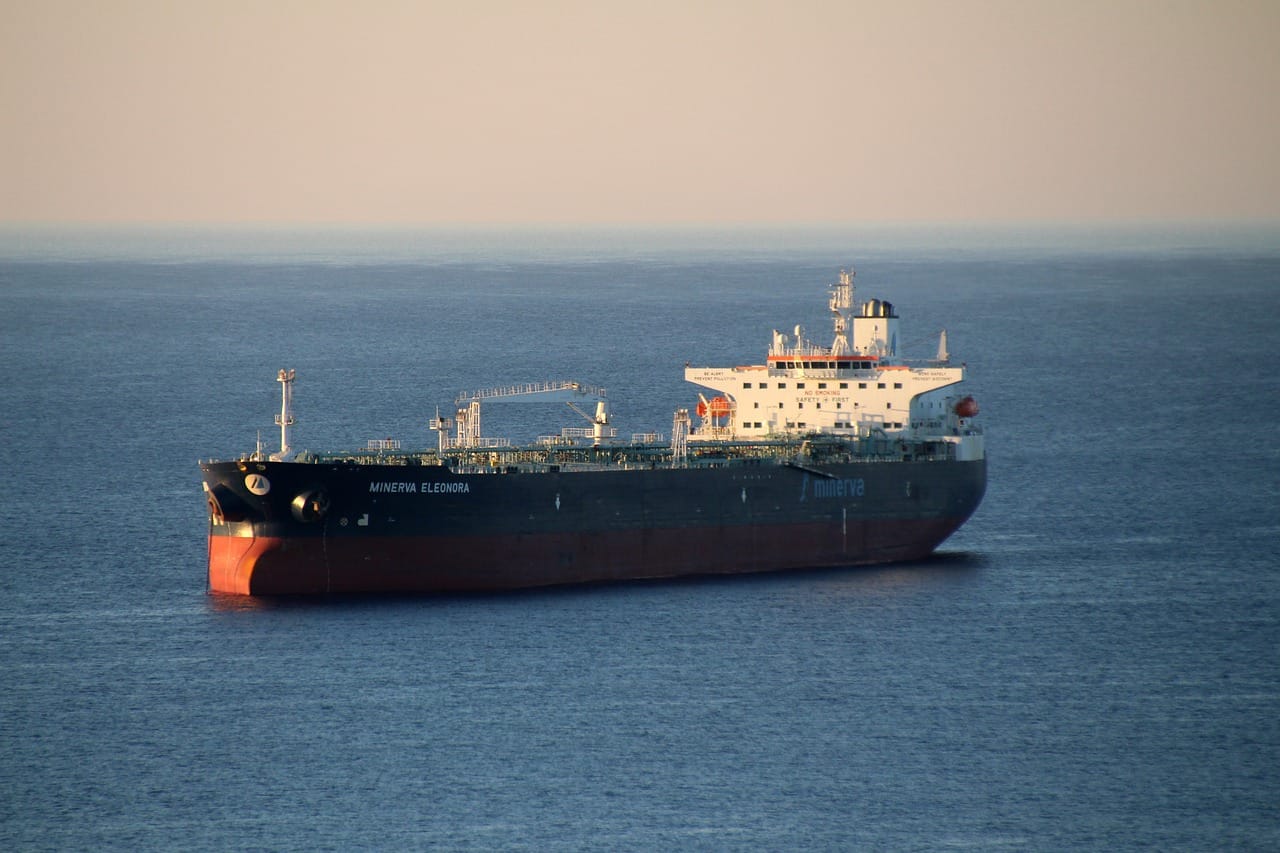Blocking Russian oil exports through the Danish Straits
Hello, and thank you to everyone who signed up for the newsletter and supports the YouTube channel. This time I want to address the question of whether Denmark can close the Danish Straits for Russian oil tankers, so Russia can’t earn money from oil exports through the Baltic Sea.
In a recent episode of the Silicon Curtain podcast, retired lieutenant general Ben Hodges made this argument, that Denmark should close the Straits for Russian oil tankers to hurt the Russian economy. Russia is using a so-called shadow fleet of old oil tankers that operate under questionable conditions to bring Russian oil to the world market despite Western attempts at reducing this source of income. This way, Russia can continue exporting oil and fund their war machine.
The shadow fleet has caused concerns in several ways. First, in a war of attrition it is obviously a goal to limit the adversary´s access to resources, and that includes income from oil exports. But secondly, there are environmental concerns related to these vessels. Their maintenance condition is extremely poor, and it is uncertain that the crew has the necessary training and qualifications to operate the vessel safely.
It is therefore obviously a good question whether Denmark can close the Straits for these ships. Gen. Hodges seems mostly concerned about limiting Russia’s access to income, but he argues that since the ships pose an ecological threat, then Denmark can “invoke its rights to stop these ships because of the risk of an environmental disaster that they pose, especially since they refuse to bring on board a pilot”.

Essentially Ben Hodges argues that the ecological threat gives an opportunity to put pressure on Russia by leveraging environmental regulation. It is a classic example of “lawfare”, where otherwise unrelated legislation is used to target the adversary in a conflict. His claim is that if we are thinking strategically about competing with Russia, then this is something we should do.
The legal problem
Ben Hodges is one of the bright minds among the commentators on the war in Ukraine, and it’s always worth listening to what he says. Where he is right in this case is that the West should absolutely be competing with Russia in all domains and all sectors of society. But he is wrong about the law in this case. There is no legal basis for Denmark to target the Russian shadow fleet.
The Danish Straits are not regulated by the United Nations Convention on the Law of the Sea (UNCLOS). Instead, there is a historical regime about the Straits. This gives Denmark some extra rights compared to what would be given under UNCLOS, but it is nothing near the kind of control that for example Turkey has over the Dardanelles and the Bosporus. Turkey can close the Straits if they want to for countries at war, and they have significant control over the passage and behavior of foreign warships that operate in the Black Sea.
What Denmark can do is very minor compared to that. For example, Denmark can require that foreign warships give prior notice before passage if they arrive in a group of more than three ships. The most important benefit that Denmark gets from the historical regime is that the right to free passage only applies to ships and not to airplanes. This means that Russian aircraft cannot roam up and down the Danish Straits without permission, which they would be able to do if the Straits were regulated by UNCLOS. Denmark is therefore obviously keen on maintaining the current legal status of the Danish Straits.
But there is no way that Denmark can legally block specific Russian oil tankers from passage, even if there is strong suspicion that they are in an unsafe technical condition. There is also no way that Denmark can require all ships to take a pilot prior to passage, and indeed this is a discussion that has been going on for decades because Denmark would like the use of pilots to be mandatory. If a specific ship starts spilling oil, then that ship can be detained, but it would not be reason to block the next ship.

Better than the Houthies
Sometimes it is important to remind yourself what you’re fighting for. In this case we like to say that the collective West is fighting for the rules-based international world order. It is probably a bit of hyperbole by now, and we are rather in a world order of great power competition than in one defined by international rules. But still there are certain international principles that are mostly functional, and on which our societies are greatly dependent. One such principle is the right to freedom of navigation.
If we start blocking Russian oil tankers from passage through the Danish Straits, then it will be undermining the principle of freedom of navigation. It will be very difficult to argue that other nations cannot do the same in other parts of the world, where we want our merchant ships to exercise their right to free passage. Indeed, we would be doing something that from a legal point of view would be difficult to distinguish from what the Houthies are doing in the Red Sea. And it is easy to see how countries like China or Iran would flip our argument around and use it as a reason to block our access in the South China Sea or the Strait of Hormuz.
So no, unfortunately it is not possible to block the passage of Russian oil tankers through the Danish Straits. Not even if there are reasons to be concerned about their potential environmental impact.